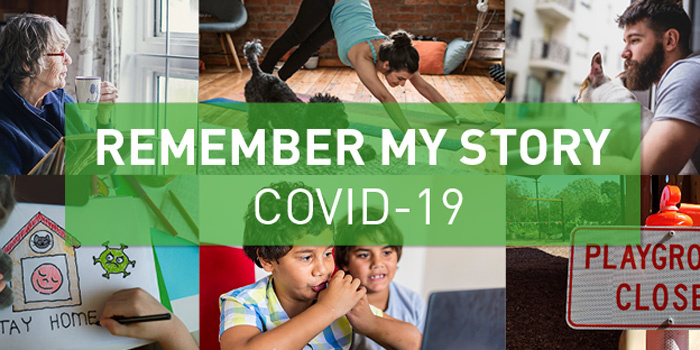One of the key differences between the national, state and territory libraries and other public libraries is our responsibility to collect and preserve Australia’s documentary heritage – in fact, this role is our legislative obligation. While each library has its own collecting specialties, such as children’s literature, Indigenous languages materials, maritime history or maps, one collecting priority that we have in common is to document the effect of major events, such as bushfires, floods and elections, on the communities we serve. The COVID-19 pandemic has called for a common collecting effort unlike any in living memory.
NSLA libraries are taking varied approaches to collecting material about Australia’s responses to COVID-19, including liaising with professional photographers and videographers working in the field, commissioning oral histories, web harvesting, and enlisting the help of the public to collect memories and documentation. With this many-pronged strategy, libraries hope to capture a broad range of perspectives, voices and experiences, to be preserved and made available in perpetuity.
Citizen collecting
State and territory libraries are calling on their constituents to assist in the collecting effort. This includes collecting physical ephemera, such as pamphlets, signs and local publications, and digital content such as enewsletters, emails from schools and businesses, photographs and videos. A number of libraries have launched online collecting campaigns, including:
- ACT COVID-19 Community Archive (Libraries ACT)
- COVID-19 Collecting Drive (State Library of Western Australia)
- COVID-19 Stories (Libraries Tasmania)
- Memory Bank (State Library Victoria)
- #NSWatHome (State Library of New South Wales)
- Remember My Story (State Library of South Australia)
- The Diary Files (DX Lab, State Library of New South Wales)
Web archiving
The Australian Web Archive, managed by the National Library of Australia, began its annual six-week .au domain harvest in early March, effectively capturing the nation’s early online responses to the pandemic and the rollout of safety measures, including government, social services, education and health websites. In addition, many state libraries have selected specific sites to be included in the archive to represent what is happening at the local level.
Legal deposit
Through National edeposit (NED), we are collecting as a matter of course a range of newspapers, newsletters and other electronic publications that capture the events and published narratives of this time. In fact, NED’s 100,000th deposit’s lead article was about a local community marking Anzac Day in lockdown.
But gathering this material is only the first step. Our librarians, curators, conservators and digital preservation specialists will be kept busy for many months, selecting which material to add to permanent collections, describing and cataloguing it, ensuring it is safely stored for the long-term and, of course, making it accessible to the public forever.
